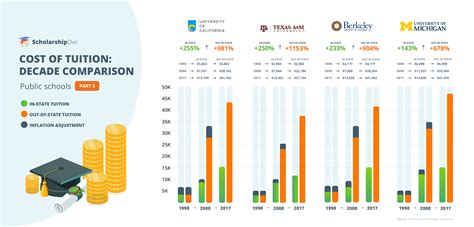For students seeking higher education beyond their home state, out-of-state tuition can pose a significant financial burden. Norfolk State University (NSU), a historically black university in Virginia, offers a diverse range of academic programs to out-of-state students, but understanding the associated tuition costs is crucial.

Out-of-State Tuition Rates at NSU
As of the 2022-2023 academic year, out-of-state undergraduate students attending NSU full-time incur the following tuition charges:
| Program | Tuition |
|---|---|
| Undergraduate | \$26,366 |
For graduate students, the tuition rates vary depending on the specific program:
| Program | Tuition |
|---|---|
| Master’s Programs | \$23,070 – \$28,020 |
| Doctoral Programs | \$30,220 – \$35,170 |
Financial Aid and Scholarships for Out-of-State Students
NSU recognizes the financial challenges that out-of-state students may face and offers various financial aid options to support their educational journey:
- Scholarships: NSU awards merit-based scholarships to high-achieving out-of-state students, including the Presidential Scholarship, the Provost’s Scholarship, and the Dean’s Scholarship.
- Grants: Federal and state grants, such as the Pell Grant and the Virginia Tuition Assistance Grant (VTAG), are available to eligible out-of-state students based on financial need.
- Loans: Out-of-state students can apply for federal and private loans to cover tuition and other expenses.
Cost of Living in Norfolk, Virginia
In addition to tuition, students should consider the overall cost of living in Norfolk, Virginia. The average monthly cost of living for a single person is approximately \$1,500, including housing, food, transportation, and utilities.
- Housing: Off-campus housing options include apartments, houses, and dormitories. Rents can range from \$800 to \$1,500 per month.
- Food: Eating out can be expensive, so many students opt to cook meals at home. Groceries cost approximately \$300-$400 per month.
- Transportation: Norfolk’s public transportation system is reliable and affordable. A monthly pass costs around \$40.
- Utilities: Electricity, gas, and water bills average around \$150 per month.
Common Mistakes to Avoid
To optimize their financial situation, out-of-state students at NSU should avoid the following common mistakes:
- Not applying for financial aid: Many students miss out on valuable financial assistance by not completing the Free Application for Federal Student Aid (FAFSA).
- Taking on excessive debt: While loans can be helpful, students should carefully consider the amount they borrow and their ability to repay it in the future.
- Overspending on lifestyle: It’s easy to get caught up in the excitement of college life, but it’s important to create a budget and stick to it.
FAQs
1. What is the deadline to apply for financial aid?
The priority deadline for financial aid is March 1st, but students are encouraged to apply as early as possible.
2. Are out-of-state students eligible for in-state tuition?
Generally, no. Out-of-state students must meet specific residency requirements to qualify for in-state tuition.
3. Can I transfer credits from another university to NSU?
Yes, NSU accepts transfer credits from accredited institutions. However, the number of credits that transfer depends on the program.
4. What is the average GPA required for admission to NSU?
The average GPA for undergraduate admission to NSU is 3.2.
5. Does NSU offer online courses?
Yes, NSU offers both undergraduate and graduate online courses through its Distance Learning Program.
6. What is the student-to-faculty ratio at NSU?
The student-to-faculty ratio at NSU is approximately 15:1.
Tips for Saving Money
To reduce the overall cost of attending NSU as an out-of-state student, consider the following tips:
- Live in university housing: On-campus housing is typically more affordable than off-campus housing.
- Cook meals at home: Eating out can be expensive, so cook meals at home as much as possible.
- Use public transportation: Norfolk’s public transportation system is reliable and affordable.
- Share expenses: Consider sharing housing or a meal plan with other students.
- Work on campus: NSU offers student employment opportunities that can help offset expenses.
Conclusion
Attending NSU as an out-of-state student can be an enriching experience, but it’s important to carefully consider the financial implications. By exploring financial aid options, budgeting wisely, and making smart lifestyle choices, students can overcome financial barriers and pursue their academic goals without breaking the bank.
